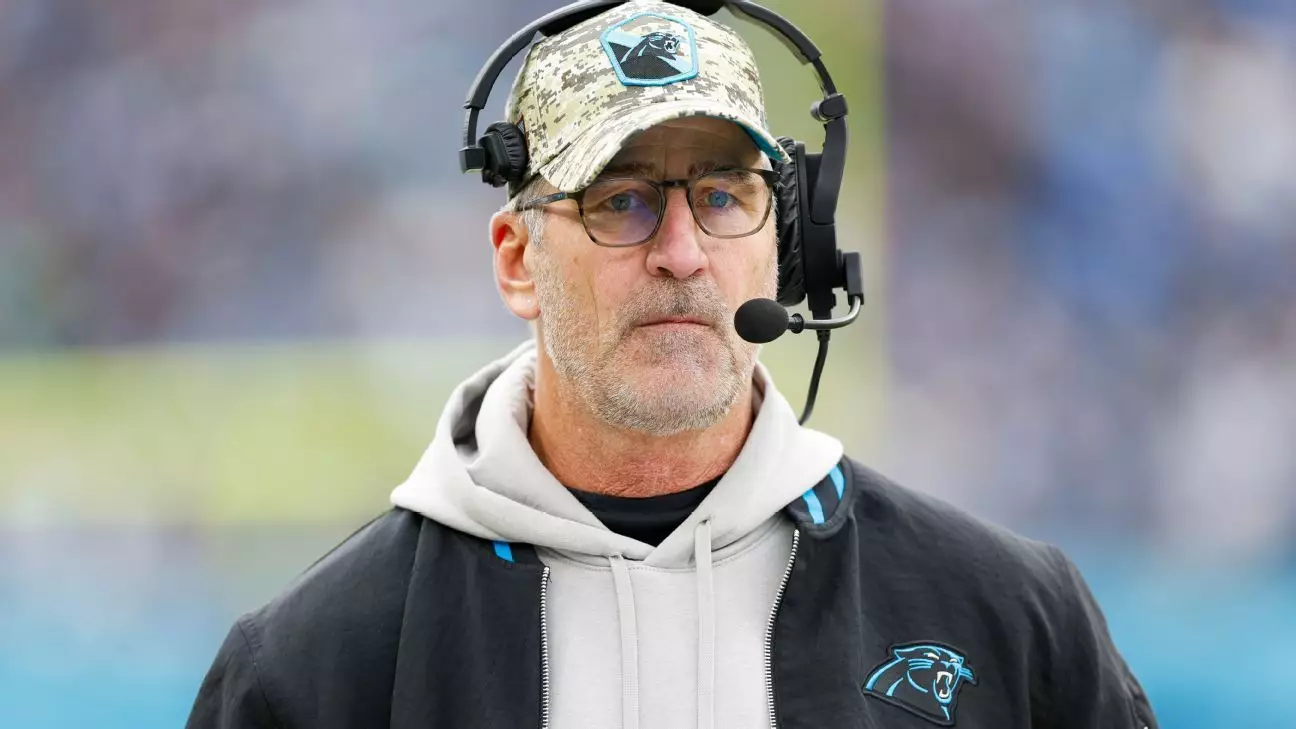Stanford University has made headlines once again, but not for its commitment to academic excellence or groundbreaking research. Instead, the university now finds itself knee-deep in the murky waters of controversy and mediocrity, having hired Frank Reich as its interim football coach for the upcoming 2025 season. This one-year arrangement is more than just a stopgap measure; it reflects the broader issues plaguing Stanford’s football program. The departure of former coach Troy Taylor was shrouded in scandal, as he was dismissed amid revelations of bullying and inappropriate conduct towards female staff. This situation underscores a troubling culture that has allowed such behavior to fester, overshadowing the program’s integrity and tarnishing its academic reputation.
The Illusion of Leadership
Frank Reich’s appointment is puzzling at best and unwise at worst. While he is hailed as a veteran NFL coach, his recent track record is far from exemplary. After a disastrous stint with the Carolina Panthers—culminating in a 1-10 record and an ignoble dismissal—Reich carries considerable baggage as he steps into the role at Stanford. Instead of being a beacon of hope, his hiring feels like an act of desperation. Andrew Luck, Stanford’s football general manager and a revered figure during his collegiate years, now faces the daunting task of turning a beleaguered program around. Yet one can’t help but wonder if this move is merely a short-sighted fix that fails to address the root causes of the ongoing decline.
The Role of Values in Coaching
One of the most perplexing aspects of Stanford’s decision is the optimistic rhetoric surrounding Reich’s leadership qualities. Luck’s statements promise that Reich “aligns seamlessly” with the program’s vision and values. Yet, can a coach whose recent days in the NFL were marred by ineffectiveness genuinely uphold the values that Stanford prides itself on? A university that demands commitment to academic excellence should also insist on a commitment to ethical conduct in its athletic programs. By hiring someone with Reich’s shaky history, Stanford risks sending the message that winning trumps integrity—a damaging precedent in both the academic and athletic spheres.
A Lack of Strategic Vision
The move also raises serious questions about Stanford’s strategic direction. With a record of 3-9 over four seasons, the program is desperately floundering. Hiring a coach who has not only been let go twice in successive seasons but has also struggled to maintain a winning record is a head-scratcher. One has to question the long-term vision of Stanford’s athletic department. A university renowned for its rigorous selection process in academics should similarly adopt a forward-thinking approach to its sports program. Why not establish a search for a permanent coach who can solidify a culture of excellence rather than relying on a stopgap with a dubious past?
The Ripple Effect on Recruitment
Reich’s hiring occurs at a precarious moment, particularly following the departure of one of Stanford’s star players, David Bailey, who opted to enter the NCAA transfer portal. The implications of Reich’s appointment extend beyond the immediate football season; it could deter potential recruits. High school athletes often look for stability and integrity in a program. When faced with uncertainty regarding leadership and ethics, talented prospects might be smitten with doubt about what Stanford has to offer. By opting for an interim solution rather than a thoughtful, long-term hire, the university risks alienating the very students it should be striving to attract.
In its attempt to remedy the situation, Stanford walks a tightrope between salvaging its image and acknowledging the systemic issues within its football program. Reich’s appointment, though framed as a necessary step, is a stark reminder of the challenges ahead in rebuilding not just a team, but also a tarnished culture.

